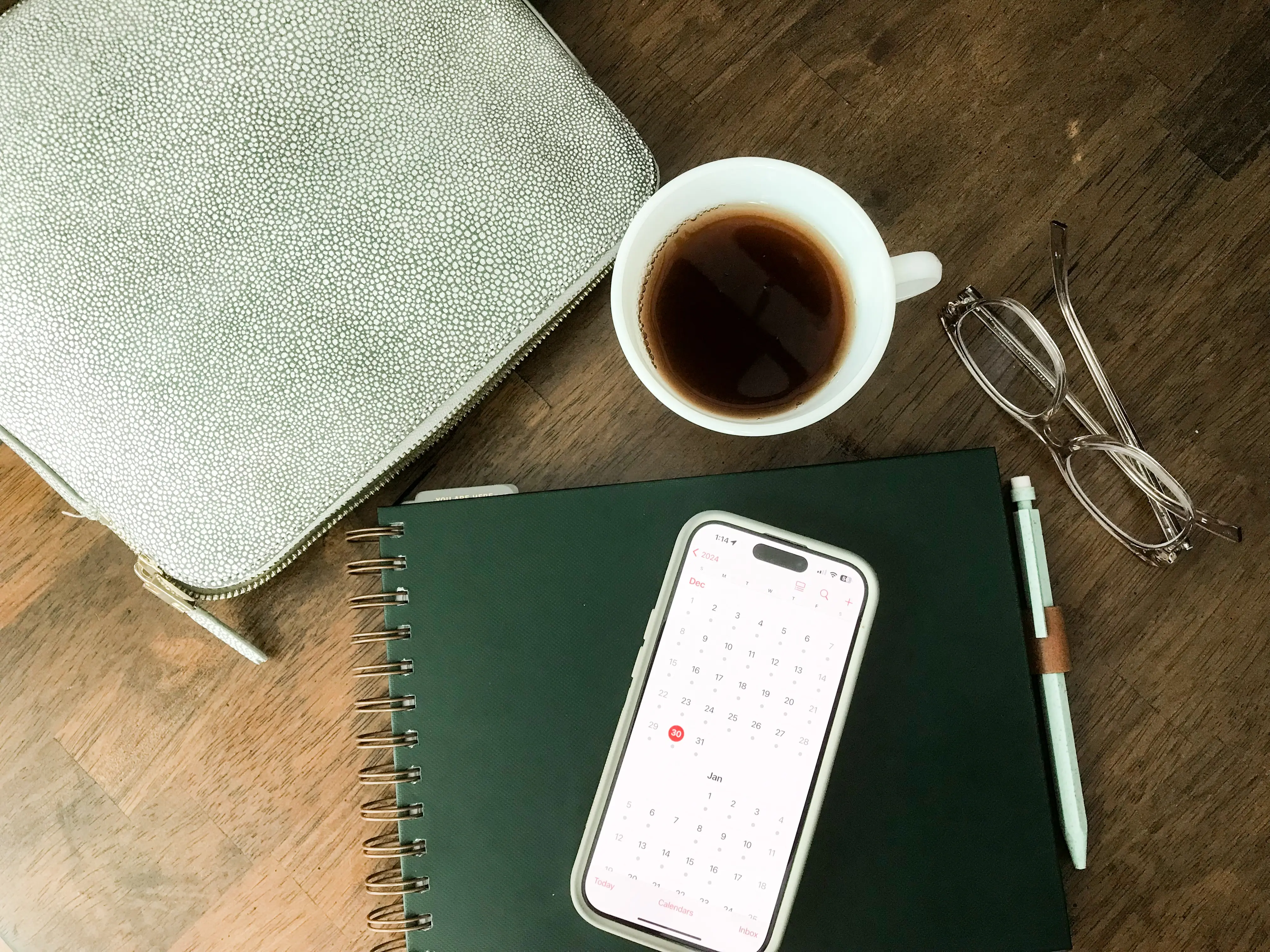Can I Write Off My Clothes as a Business Expense?
Short answer: Probably not.
Long answer: It depends, but still probably not.
I know. I know. It's disappointing.
Especially when you just spent $200 on a new outfit for client meetings or photoshoots and you're thinking, "This is literally for work. Why can't I deduct it?"
(I get this question allll the time, and people are always bummed when I tell them the truth. But I'd rather disappoint you now than have you deal with an IRS audit later, so here we go.)
The IRS has very specific rules about clothing deductions, and they're way stricter than most people realize.
The IRS Rule: It Has to Be "Ordinary and Necessary"
For any business expense to be deductible, it has to meet two requirements:
1. Ordinary—common and accepted in your industry
2. Necessary—helpful and appropriate for your business
But with clothing, there's a third requirement that trips everyone up:
The clothing must not be suitable for everyday wear.
If you could wear it outside of work—even if you personally wouldn't—it's not deductible.
(Yeah, the IRS doesn't care that you'd never wear that blazer to Target. If you could, it doesn't count.)
What DOESN'T Qualify
"I bought this suit specifically for client meetings."
Not deductible. Even if you only wear it for work, a suit is considered suitable for everyday wear. The IRS doesn't care about your personal fashion choices.
"I bought professional clothes for my photoshoot/headshots."
Not deductible. Business casual, professional attire, even that blazer you bought just for your website photos—none of it qualifies because you could theoretically wear it in non-work settings.
(I know. It sucks. You literally bought it FOR work. But the IRS doesn't see it that way.)
"I'm a personal trainer and I only wear these workout clothes at the gym."
Not deductible. Workout clothes are considered everyday wear, even if you only use them for training clients.
"I'm a wedding photographer and I dress up for every wedding."
Not deductible. That nice dress or button-down you wear to weddings? Still everyday wear, even if you bought it specifically for work events.
"I run an online business and bought clothes for Instagram content."
Not deductible. Unless the clothing is a costume or branded uniform (more on that below), regular clothes worn in content aren't deductible.
I know it feels unfair. But the IRS rule is clear: if it's something you could wear in your regular life, it doesn't count.
What DOES Qualify
Okay, so what clothing can you actually deduct? Here's the short list:
Uniforms with your business logo or branding
If you have shirts, hats, or jackets embroidered with your business name and logo, those are deductible. Why? Because these are usually categorized as a marketing expense rather than clothing, which is why they’re allowed.
Costumes or specialized clothing
If you're a performer, actor, or entertainer and you buy costumes that you wouldn't wear outside of work, those are deductible. Think: a Santa suit for a holiday gig, a character costume for kids' parties, or stage outfits for performances.
Protective gear or specialized workwear
Hard hats, steel-toed boots, safety goggles, lab coats—anything required for safety or that's industry-specific and not suitable for regular wear counts.
Clothing used exclusively in online content (maybe)
This one is tricky. If you buy a very specific outfit solely for a brand photoshoot or video and it's clearly not something you'd wear in real life, you might be able to deduct it.
Client closets for photographers
If you're a photographer and you maintain a client closet—a collection of dresses, outfits, or accessories that your clients can borrow for their photoshoots—those clothes are deductible. Why? Because they're not for your personal use. They're inventory for your business, kind of like props. You're not wearing them; your clients are borrowing them for sessions. Just make sure you keep good records showing these items are part of your client closet and not your personal wardrobe.
Before You Leave—Here's a Workaround You Should Know About
Okay, so you can't buy clothes and write them off BUT here's something most people don't know: if you rent clothing for a specific business-related event, that rental cost IS deductible.
Yep. Renting a tux for a speaking engagement? Deductible. Renting a gown for an industry awards ceremony where you're being honored? Deductible. Renting an outfit for a high-profile client meeting or conference? Also deductible.
Why does this work when buying doesn't? Because you're not adding it to your personal wardrobe. It's a temporary expense directly tied to a specific business activity, and then you give it back.
The catch: You need to document this REALLY well.
Keep the rental receipt. Note exactly what business event it was for. And ideally, keep proof that the event was actually business-related (think: invitation, registration confirmation, event photos, whatever).
The more specific your documentation, the better. "Rented tuxedo for keynote speech at XYZ Conference" is way better than just "clothing rental."
What About Dry Cleaning or Tailoring?
If you have clothing that is deductible (like uniforms or costumes), you can also deduct the cost of cleaning and maintaining it—including dry cleaning and tailoring.
But dry cleaning or tailoring your everyday work clothes? Not deductible.
Why the IRS Is So Strict About This
You might be wondering: why is the IRS so picky about clothing?
It comes down to this: clothing is considered a personal expense because everyone needs clothes, whether they work or not. The IRS doesn't want people writing off their entire wardrobe just because they wear it to work.
They've drawn a hard line: if the clothing is suitable for everyday wear, it's personal.
(And trust me, they've seen every creative argument in the book. They're not budging on this one.)
What You Should Do Instead
Okay, so you can't deduct most of your work clothes. That sucks. But here's what you can do:
Focus on actual deductible expenses
Instead of trying to stretch the rules on clothing, make sure you're taking advantage of legitimate deductions like:
→ Home office expenses
→ Business supplies
→ Software and subscriptions
→ Professional development and education
→ Marketing and advertising costs
→ Mileage and travel
There's plenty of other stuff you can write off! Don't risk an audit over a blazer. And keep good records if you DO have deductible clothing.
I know it's tempting to just categorize that new blazer as "business attire" and call it a day.
But if you get audited, the IRS will disallow it—and you'll owe back taxes plus penalties.
The Bottom Line
Can you write off your clothes as a business expense? Only if they're uniforms, costumes, or specialized workwear that you truly wouldn't wear outside of work.
Everything else—suits, dresses, business casual, workout clothes, even that outfit you bought specifically for client meetings—doesn't qualify.
I know it's frustrating. But the rules are the rules, and trying to bend them isn't worth the risk.
...
Okay, real talk for a second: I get why this is annoying. You're spending money on clothes specifically for work, and it feels like a business expense. But the IRS has heard every version of "but I ONLY wear this for work!" and they're not buying it.
So save yourself the headache (and potential audit) and just accept that work clothes are a personal expense. Focus on the deductions you CAN take, and you'll be fine.





Hey there!
I'm Taylor—the face behind Coyne Bookkeeping. I believe your business should support your life, not take it over.
Whether you're behind, burned out on DIY, or just want someone steady providing support that actually feels helpful—you're in the right place.
Ready to stop DIY-ing your bookkeeping?
If you've been staring at QuickBooks wondering what the heck you're doing, you're not alone.
That's literally what I'm here for.
.webp)







